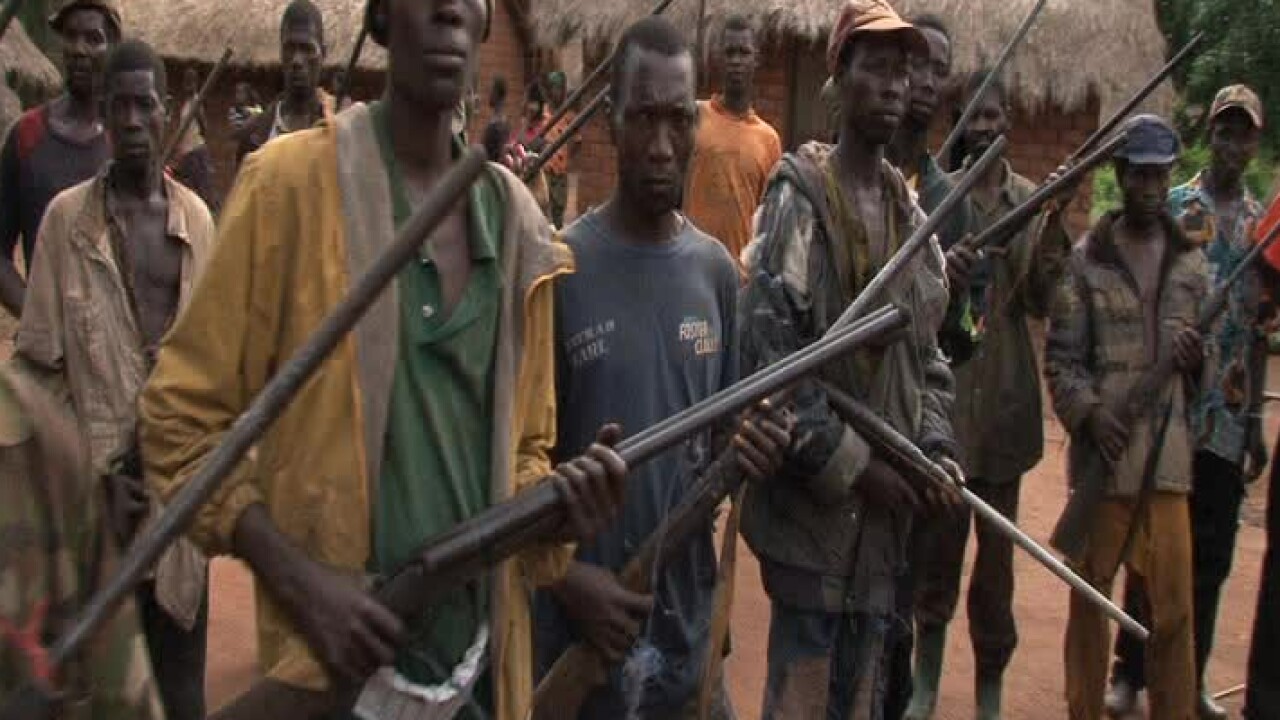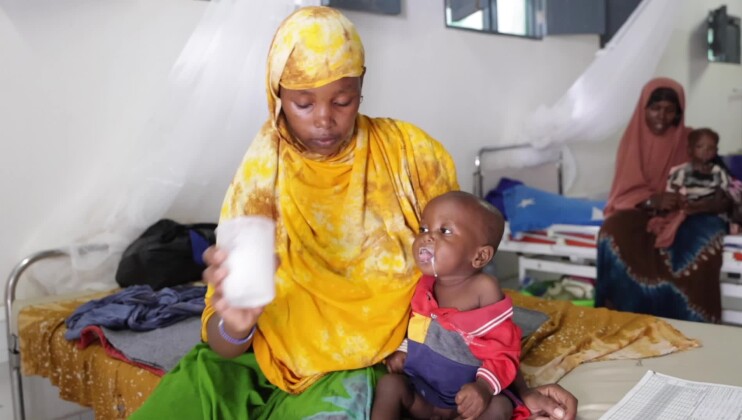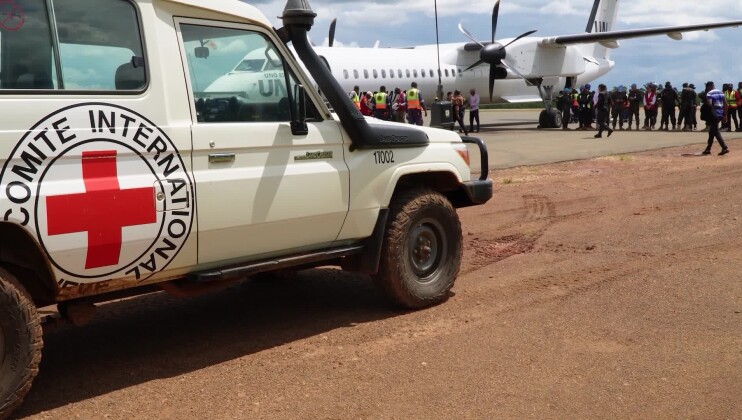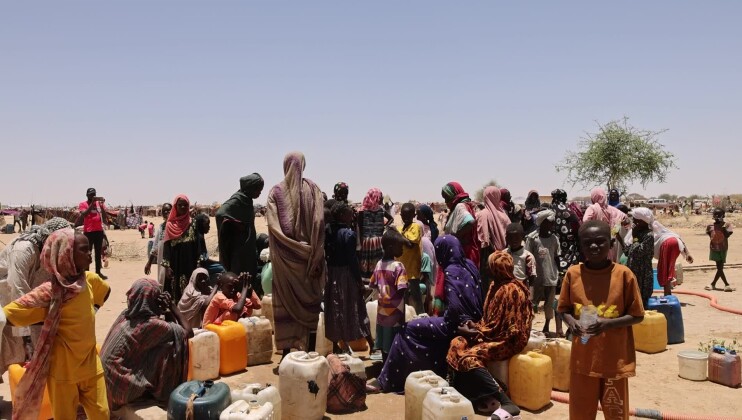Central African Republic: Civilians defend themselves

This is a modal window.
Several rebel groups and bandits are spreading fear and chaos in many parts of the Central African Republic. Regular attacks on civilians are resulting in killings, abductions, rapes and looting. They are forcing people to flee their homes to find a safe haven. Hundreds of thousands have been displaced, putting pressure on already impoverished host communities.
The town of Obo lies in the Haut-Mbomou region in the south-east part of the Central African Republic. It is 1,300 kilometres from the capital, Bangui, and close to the borders with the DRC and Sudan. The population of Obo is normally 5,000 but because of the lack of security in neighbouring areas, there are now 10,000 people living there. Half of them are in shelters on the outskirts, too terrified to return to their villages until their safety is assured. The roads into Obo are regarded as unsafe and former mayor, Pierre-Ambroise Takouall says they are stuck. Trade has virtually stopped. Food is scarce and access to the fields to sow crops is very limited.
The Central African Republic (CAR) - one of the least developed nations on earth - struggles further in the face of enduring security problems which disrupt local populations, mire political advances and hamper development. In many areas, local populations are forming armed vigilante groups to defend themselves and their communities. They are even managing to create guns from the most basic of materials.
The violence and subsequent displacement is occurring against a pre-existing backdrop of chronic poverty and a lack of public health, education and transport infrastructure. The situation is further exacerbated by the arrival of thousands of refugees from neighbouring countries also fleeing the armed 'bandits' and roving groups of LRA. The identity of the perpetrators is often unclear, adding to the confusion of a terrorized population.
THE STORY
SorovoSarvatoriopal, fled his village with his wife and 7 children in mid 2009. Two months ago, his wife and her sister were both murdered as they searched for food. Their bodies were discovered much later by hunters. He is left to care for his children in a tiny makeshift shelter with no way of making a living, and no immediate prospects of returning home. Now he returns to his village for the first time to view his ruined house. With seeds brought by the ICRC, Sorovo again begins cultivating food crops in fields very close to Obo.
Marie Zoungapa lives on the charity of her older brothers. She was abducted by an armed group and held for a week. She later admitted she had been raped. Her husband then abandoned her and their children. Young girls, she says are often kidnapped, raped and taken away to be used as forced labour.
In a situation where their families are continually under threat, a group of local men has formed the Obo Auto Defence Committee. They make their own guns and patrol the jungle. The Committee President, Wamba Aniragbe says the bandits have stopped coming to this area.
The ICRC has been distributing food to the people of Obo on a regular basis since October 2009. The convoys of trucks bring basic food staples and seeds for crops. ICRC representative, Isabelle Borgeaud, says with such a serious security problem, Obo residents are afraid to tend their fields and the refugees try to survive with nothing.
Additional information:
- The Central African Republic shares its borders with Sudan, DRC, Congo, Cameroon and Chad.
- In 2009 its population was estimated at 4.4 million.
- The average life expectancy is 47 years.
- The Central African Republic has the tenth highest under five mortality rate in the world at 173 per thousand births (UNICEF State of the World's Children, 2010).
- Less than half the population is literate and 40 percent of children do not have access to a primary school education.
- In close cooperation with the Central African Red Cross Society, ICRC seeks to reach the people directly affected by the fighting and provide basic food aid and shelter for both the residents and the displaced. It is also working to resume programmes that assist the transition from relief to development by supporting the sowing of crops, and resumption of water supplies.
- Additionally, the ICRC continues to try and reach all parties to the conflict with education programmes which spell out the principles of International Humanitarian Law - especially as it regards the protection of civilians.
SHOTLIST ATTACHED



